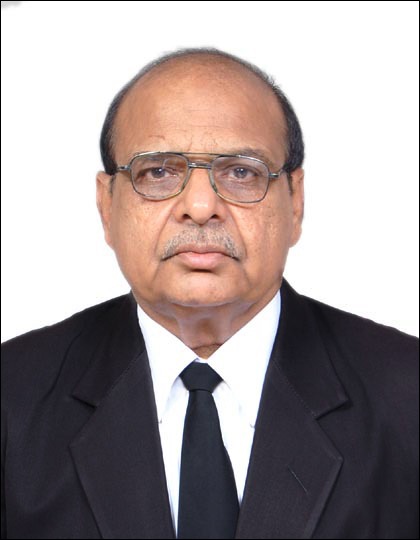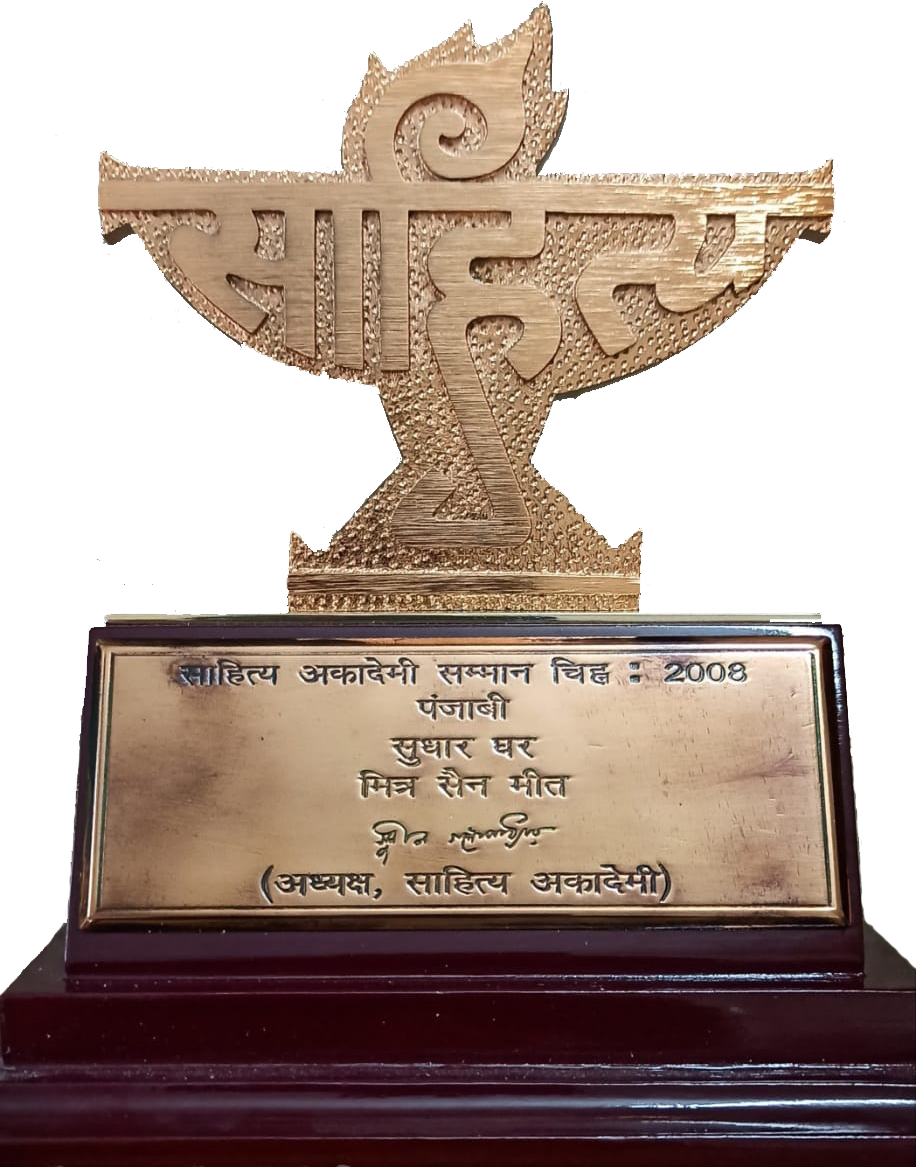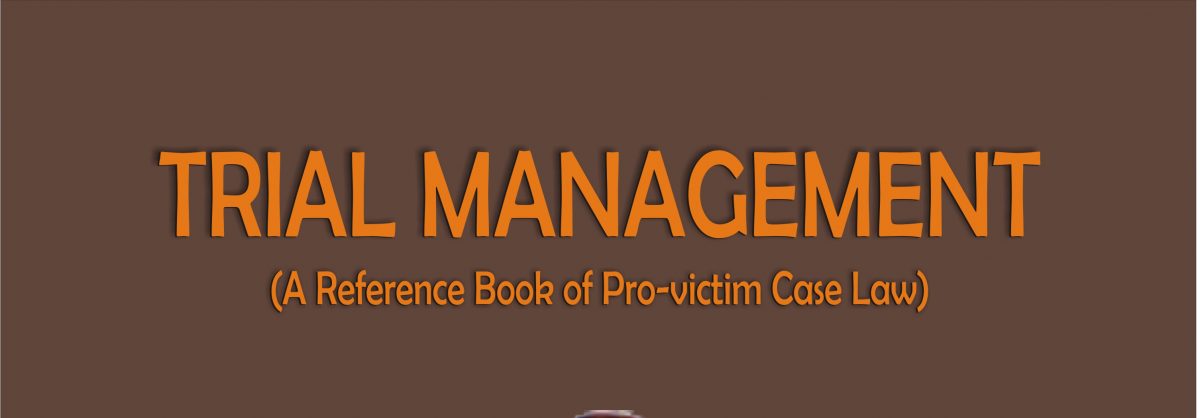Powers of PP and of Court
ਮੁਕੱਦਮੇ ਦੀ ਸੁਣਵਾਈ ਦੌਰਾਨ ਸਰਕਾਰੀ ਵਕੀਲ (ਪਬਲਿਕ ਪ੍ਰਾਸੀਕਿਊਟਰ) ਅਤੇ ਅਦਾਲਤ ਦੇ ਅਧਿਕਾਰ (Sections 24, 225, 226, 301, 321, 401 Cr.P.C. & Section 138 Evidence Act)
ਮੁਕੱਦਮੇ ਦੀ ਸੁਣਵਾਈ ਦੌਰਾਨ ਪੀੜਤ ਧਿਰ ਦੀ ਪੈਰਵਾਈ ਸਰਕਾਰੀ ਵਕੀਲ ਵੱਲੋਂ ਕੀਤੀ ਜਾਂਦੀ ਹੈ। ਪੀੜਤ ਧਿਰ ਨੂੰ ਆਪਣਾ ਪੱਖ ਪੇਸ਼ ਕਰਨ ਲਈ ਪ੍ਰਾਈਵੇਟ ਵਕੀਲ ਨਿਯੁਕਤ ਕਰਨ ਦਾ ਅਧਿਕਾਰ ਤਾਂ ਹੈ ਪਰ ਪ੍ਰਾਈਵੇਟ ਵਕੀਲ ਸਰਕਾਰੀ ਵਕੀਲ ਦੀ ਥਾਂ ਨਹੀਂ ਲੈ ਸਕਦਾ। ਉਸਦੇ ਅਧਿਕਾਰ ਸੀਮਿਤ ਹੁੰਦੇ ਹਨ। ਸੁਣਵਾਈ ਸਮੇਂ ਸਰਕਾਰੀ ਵਕੀਲ ਨੂੰ ਆਪਣੀ ਮਰਜ਼ੀ ਅਨੁਸਾਰ ਗਵਾਹਾਂ ਨੂੰ ਭੁਗਤਾਉਣ ਜਾਂ ਛੱਡ ਦੇਣ ਦਾ ਅਧਿਕਾਰ ਪ੍ਰਾਪਤ ਹੈ।
- ਸਰਕਾਰੀ ਵਕੀਲ ਨੂੰ ਵਾਧੂ ਅਤੇ ਦੋਸ਼ੀ ਨਾਲ ਸਾਜ-ਬਾਜ ਕਰ ਚੁੱਕੇ ਗਵਾਹ ਨੂੰ ਛੱਡਣ ਦਾ ਅਧਿਕਾਰ ਹੈ।
Case: Masalti v/s State of Uttar Pradesh, AIR 1965 SC 202 (SC – Four Judges Bench)
Para “15. ….. It is not unknown that where serious offences like the present are committed and a large number of accused persons are tried, attempts are made either to terrorise or win over prosecution witnesses, and if the prosecutor honestly and bona fide believes that some of his witnesses have been won over, it would be unreasonable to insist that he must tender such witnesses before the Court.”
2. ਅਦਾਲਤ ਸਰਕਾਰੀ ਵਕੀਲ ਨੂੰ ਗਵਾਹਾਂ ਦੀ ਲਿਸਟ ਵਿੱਚ ਸ਼ਾਮਿਲ ਸਾਰੇ ਗਵਾਹਾਂ ਨੂੰ ਬਤੌਰ ਗਵਾਹ ਭੁਗਤਾਉਣ ਲਈ ਮਜ਼ਬੂਰ ਨਹੀਂ ਕਰ ਸਕਦੀ।
Case: Hukum Singh v/s State of Rajasthan 2001 Cri.L.J. 511 (SC)
Para “14. When the case reaches the stage envisaged in S. 231 of the Code the Sessions Judge is obliged “to take all such evidence as may be produced in support of the prosecution.” It is clear from the said Section that the Public Prosecutor is expected to produce evidence “in support of the prosecution” and not in derogation of the prosecution case. At the said stage the Public Prosecutor would be in a position to take a decision as to which among the persons cited are to be examined. If there are too many witnesses on the same point the Public Prosecutor is at liberty to choose two or some among them alone so that the time of the Court can be saved from repetitious depositions on the same factual aspects..”
3. ਸਰਕਾਰੀ ਵਕੀਲ, ਪੁਲਿਸ ਵੱਲੋਂ ਰੱਖੇ ਗਏ, ਹਰ ਗਵਾਹ ਦੀ ਗਵਾਹੀ ਕਰਾਉਣ ਲਈ ਪਾਬੰਦ ਨਹੀਂ ਹੈ।
Case: Hukum Singh v/s State of Rajasthan 2001 Cri.L.J. 511
Para “15. The situation in a case where the prosecution cited two categories of witnesses to the occurrence, one consisting of persons closely related to the victim and the other consisting of witnesses who have no such relation, the Public Prosecutor’s duty to the Court may require him to produce witnesses from the latter category also subject to his discretion to limit to one or two among them. But if the Public Prosecutor got reliable information that any one among that category would not support the prosecution version he is free to state in court about that fact and skip that witness being examined as a prosecution witness. It is open to the defence to cite him and examine him as defence witness. The decision in this regard has to be taken by the public Prosecutor in a fair manner…”
4. ਗਵਾਹ ਆਪਣੇ ਬਿਆਨ ਉੱਤੇ ਕਾਇਮ ਹੈ ਜਾਂ ਨਹੀਂ, ਇਹ ਜਾਨਣ ਲਈ ਸਰਕਾਰੀ ਵਕੀਲ ਨੂੰ ਗਵਾਹ ਨਾਲ ਗੱਲਬਾਤ (ਇੰਟਰਵਿਊ) ਕਰਨ ਦਾ ਅਧਿਕਾਰ ਹੈ।
Case: Hukum Singh v/s State of Rajasthan 2001 Cri.L.J. 511
Para “14. ….. He can interview the witness before hand to enable him to know well in advance the stand which that particular person would be adopting when examined as a witness in court.”
5. ਸਰਕਾਰੀ ਵਕੀਲ ਨੂੰ ਗਵਾਹ ਉੱਪਰ ਦੁਬਾਰਾ ਵਿਸਥਾਰ ਨਾਲ ਜਿਰਹਾ (੍ਰe-eਣaਮਨਿaਟਿਨ) ਕਰਨ ਦਾ ਅਧਿਕਾਰ ਹੈ।
Case: Rammi @ Rameshwar v/s State of Madhya Pradesh, 1999 (4) RCR Criminal 246 (SC)
Para “17. ….. If the Public Prosecutor feels that certain answers require more elucidation from the witness he has the freedom and the right to put such questions as he deems necessary for that purpose, subject of course to the control of the court in accordance with the other provisions. But the court cannot direct him to confine his questions to ambiguities alone which arose in cross-examination.”
Para “18. Even if the Public Prosecutor feels that new matters should be elicited from the witness he can do so, in which case the only requirement is that he must secure permission of the court. If the Court thinks that such new matters are necessary for proving any material fact, courts must be liberal in granting permission to put necessary questions.
Para “19. ….. There is no warrant that re-examination should be limited to one or two questions. If the exigency requires any number of questions can be asked in re-examination.”
6. ਅਦਾਲਤ ਸਰਕਾਰੀ ਵਕੀਲ ਨੂੰ ਇਹ ਹਦਾਇਤ ਨਹੀਂ ਕਰ ਸਕਦੀ ਕਿ ਉਹ ਗਵਾਹ ਉੱਪਰ ਜਿਰਹਾ ਕੇਵਲ ਅਸਪੱਸ਼ਟ ਨੁਕਤਿਆਂ ਨੂੰ ਸਪੱਸ਼ਟ ਕਰਨ ਲਈ ਹੀ ਕਰੇ। ਅਦਾਲਤ ਇਹ ਵੀ ਹਦਾਇਤ ਨਹੀਂ ਕਰ ਸਕਦੀ ਕਿ ਸਰਕਾਰੀ ਵਕੀਲ ਵੱਲੋਂ ਪੁੱਛੇ ਜਾਣ ਵਾਲੇ ਪ੍ਰਸ਼ਨਾਂ ਦੀ ਗਿਣਤੀ ਸੀਮਿਤ ਹੋਵੇ। ਸਰਕਾਰੀ ਵਕੀਲ ਨੂੰ ਸਫਾਈ ਧਿਰ ਵੱਲੋਂ ਕੀਤੀ ਗਈ ਜਿਰਹਾ ਦੌਰਾਨ ਉੱਠੇ ਨਵੇਂ ਨੁਕਤਿਆਂ ਨੂੰ ਸਪੱਸ਼ਟ ਕਰਾਉਣ ਦਾ ਪੂਰਾ ਅਧਿਕਾਰ ਹੈ।
Case : B.Janakiramaiah Chetty v/s A.K. Parthasarathi, 2002 Cri.L.J.4062 (A.P. – HC)
Para “10. From the above, it is very clear that the aforesaid provision under S. 225, Cr. P.C. specifically contemplates that the prosecution shall be conducted by a public prosecutor in every trial before a Court of session. Even the use of the expression “shall” also makes it mandatory and absolute one without there being any exception. Further, the same is reiterated under S. 301(1) Cr. P.C. which allows the appearance of the public prosecutor to plead without any written authority before any Court. However, under sub-section (2) thereof, it only contemplates that any private person can instruct a pleader who can act on the direction of the public prosecutor and also submit written arguments with the permission of the Court. Therefore, it is amply clear that the role of a public prosecutor in such a case where a private pleader steps in is not totally obliterated. No such person who has been permitted can virtually take over the reins of the public prosecutor. Ultimately, it is the public prosecutor alone who has to conduct the entire prosecution and the other pleader can only assist the public prosecutor. Having regard to the fact that the Public Prosecutor represents the State, which is the prosecuting authority for all the criminal trials, it is the exclusive prerogative of the State to conduct such prosecution through its agent viz., the public prosecutor and, therefore, no other person much less any other advocate has any locus or any right to plead on behalf of the prosecution and conduct the case.”
7. ਪੀੜਿਤ ਧਿਰ ਵੱਲੋਂ ਨਿਯੁਕਤ ਕੀਤਾ ਗਿਆ ਵਕੀਲ ਅਦਾਲਤ ਅੱਗੇ ਬਹਿਸ ਨਹੀਂ ਕਰ ਸਕਦਾ।
Case : Manmohan Lal Sachdev v/s State, 2000 (2) RCR Criminal 523 (Delhi – HC)
Facts of the case
The complainant of this case sought permission from the Trial Court that his counsel be allowed to address arguments before the Court. This request was accepted and the Private Counsel was allowed to address the arguments. The accused challenged this order in the Hon’ble High Court. Hon’ble Delhi High Court while setting aside the order of the trial court held that Private Counsel cannot address arguments before the Court. He may with the permission of the Court, submit the written arguments after the evidence is closed in the case.
8. ਪੀੜਿਤ ਧਿਰ ਵੱਲੋਂ ਨਿਯੁਕਤ ਕੀਤੇ ਗਏ ਵਕੀਲ ਨੂੰ ਸਫਾਈ ਵਿੱਚ ਪੇਸ਼ ਹੋਏ ਗਵਾਹਾਂ ਉੱਪਰ ਜਿਰਹਾ ਕਰਨ ਦਾ ਅਧਿਕਾਰ ਨਹੀਂ ਹੈ।
Case : Kuldeep Singh v/s State of Punjab, 1996 Cri.L.J. 1619 (P & H – HC)
Para “5. I have given my thoughtful consideration to the submissions made by the learned counsel for the parties and have perused the records. In terms of Section 301 (2) of the Code, a pleader engaged by a private party cannot plead though he can act and that too under the directions of the Public Prosecutor. In view of this, normally, a counsel representing the complainant party cannot conduct the prosecution and he can only assist the Public Prosecutor in prosecuting the case and file written arguments at the end of the arguments with the permission of the Court……”
9. ਸਰਕਾਰ, ਸਰਕਾਰੀ ਵਕੀਲ ਨੂੰ, ਮੁਕੱਦਮੇ ਨੂੰ ਵਾਪਿਸ ਲੈਣ ਦਾ ਹੁਕਮ ਦੇ ਸਕਦੀ ਹੈ।
Case: K.V.V. Krishna Rao v/s State of A.P. 2003 Cri.L.J.2894 (A.P. – HC)
Para “11. In view of the above legal position and also in view of the provisions of Section 321 of Cr. P.C., the first contention of the counsel for the petitioner that the Government has no power to issue G.O. instructing the Public Prosecutor or the Assistant Public Prosecutor to withdraw from prosecution, after the charge-sheet is filed, cannot be accepted and the same is accordingly rejected.”
10. ਅਦਾਲਤ ਵਿੱਚ ਮੁਕੱਦਮਾ ਵਾਪਿਸ ਲੈਣ ਦੀ ਅਰਜ਼ੀ ਦੇਣ ਤੋਂ ਪਹਿਲਾਂ ਸਰਕਾਰੀ ਵਕੀਲ ਨੂੰ ਆਪਣੇ ਵਿਵੇਕ ਦੀ ਵਰਤੋਂ ਕਰਕੇ, ਨਿਰਪੱਖ ਤੌਰ ਤੇ ਇਸ ਸਿੱਟੇ ਤੇ ਪੁੱਜਣਾ ਜ਼ਰੂਰੀ ਹੈ ਕਿ ਮੁਕੱਦਮਾ ਵਾਪਿਸ ਲੈਣਾ ਲੋਕ ਹਿਤ ਵਿੱਚ ਹੈ।
Case: K.V.V. Krishna Rao v/s State of A.P. 2003 Cri.L.J.2894 (A.P. – HC)
Para “14. A combined reading of the above two Constitutional Bench judgments of the Apex Court (cited 5 and 6 supra) would abundantly make it clear that Public Prosecutor is the Executive Authority and even though there are instructions from the appropriate Government to withdraw from prosecuting the case, he has to apply his mind independently notwithstanding any reasons accorded by Government, if any, before filing a petition under Section 321 of the Cr. P.C. In other words, he is not simply bound by the reasons of the Government.”
11. ਸਰਕਾਰੀ ਵਕੀਲ ਵੱਲੋਂ ਮੁਕੱਦਮਾ ਵਾਪਿਸ ਲੈਣ ਦੀ ਅਰਜ਼ੀ ਦਿੱਤੇ ਜਾਣ ਬਾਦ ਅਦਾਲਤ ਲਈ ਮੁਦਈ ਧਿਰ ਨੂੰ ਨੋਟਿਸ ਦੇਣਾ ਜ਼ਰੂਰੀ ਨਹੀਂ ਹੈ।
Case : K.V.V. Krishna Rao v/s State of A.P. 2003 Cri.L.J.2894
Para “23. The other contention of the counsel for the petitioner is that the petitioner is entitled to notice and since no notice was given before issuing the impugned G.O., the same is liable to be set aside. As already noticed, no notice is contemplated under Section 321 of Cr. P.C….”
12. ਜੇ ਸਰਕਾਰੀ ਵਕੀਲ ਵੱਲੋਂ ਅਦਾਲਤ ਵਿੱਚੋਂ ਮੁਕੱਦਮਾ ਵਾਪਿਸ ਲੈਣ ਦੀ ਅਰਜ਼ੀ ਸਰਕਾਰ ਦੇ ਹੁਕਮ ਦੇ ਅਧਾਰ ਤੇ ਦਿੱਤੀ ਗਈ ਹੋਵੇ ਤਾਂ ਮੁਦਈ ਨੂੰ ਸਰਕਾਰ ਦੇ ਇਸ ਹੁਕਮ ਨੂੰ ਚੁਣੌਤੀ ਦੇਣ ਦਾ ਅਧਿਕਾਰ ਹੈ।
Case : K.V.V. Krishna Rao v/s State of A.P. 2003 Cri.L.J.2894
Para “23. However, it cannot be understood that he cannot challenge the G.O. and it is always open to him to challenge the G.O., provided he could establish that there are gross violations of the conditions prescribed under Section 321 of Cr. P.C. As already pointed out, in the instant case, there are no such violations. Hence, this contention also merits rejection.”
13. ਸਰਕਾਰੀ ਵਕੀਲ ਵੱਲੋਂ ਮੁਕੱਦਮਾ ਵਾਪਿਸ ਲੈਣ ਲਈ ਕੀਤੇ ਗਏ ਫੈਸਲੇ ਵਿੱਚ ਮੁਦਈ ਜਾਂ ਕਿਸੇ ਪੀੜਿਤ ਗਵਾਹ (Charge witness) ਨੂੰ ਦਖਲ ਦੇਣ ਦਾ ਅਧਿਕਾਰ ਨਹੀਂ ਹੈ।
Case: Razack & others v/s State of Kerala 2001, Cri.L.J. 275 (Kerela – HC)
Para “16. ….. Under the provisions of Section 321 of the Cr. P. C. when the Public Prosecutor applies for withdrawal from prosecution, the complainant or the charge witnesses has not locus standi in the exercise of the discretion by the Public Prosecutor to withdraw from prosecution.”







More Stories
ਮੁਕੱਦਮਿਆਂ ਦੀ ਸੁਣਵਾਈ(Trial of cases)
ਕਿਸੇ ਵਿਅਕਤੀ ਨੂੰ ਮੁਕੱਦਮੇ ਵਿੱਚ ਦੋਸ਼ੀ ਬਣਾਉਣਾ( Arraigning a person as accused)
ਧਾਰਾ 195 ਦੀ ਮਨਾਹੀ (Prohibition of Section 195)